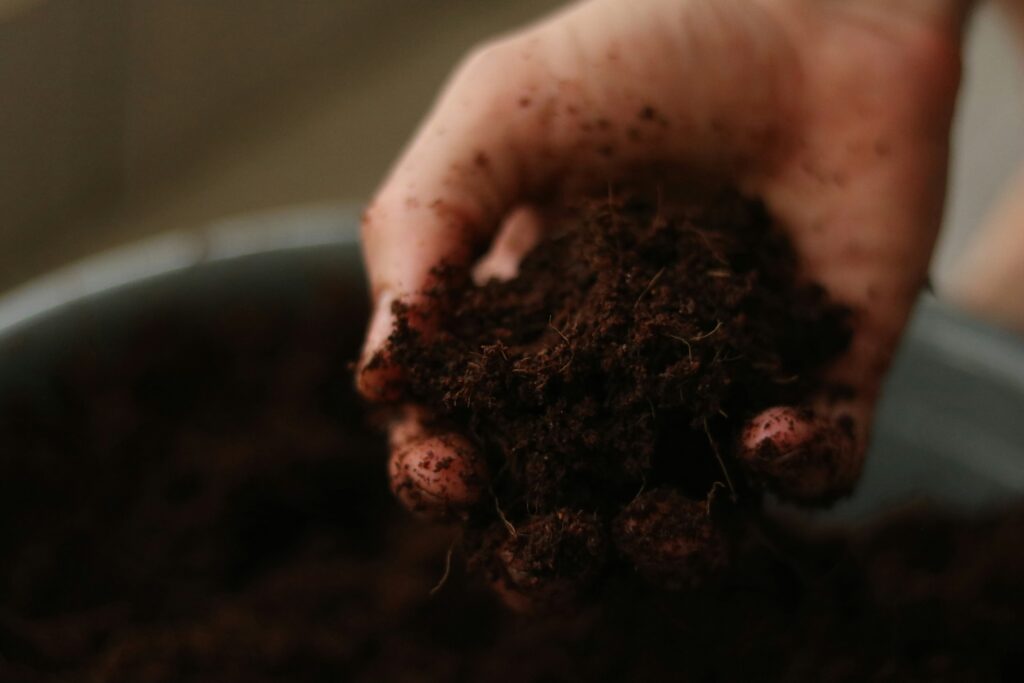Humic For Gut Health
So you’re wondering if you can use humic for gut health? Does it have any benefits? in this article we will explore all the reasons why you would want to use humic!
What is Humic Acid?
Humic acid is a complex organic molecule that is a key component of humus, the organic matter found in soil, peat, and coal. It is a mixture of various compounds, including phenolic acids, quinones, and heterocyclic compounds, which are derived from the decomposition of plant and animal matter.
Humic acid is a brown or black, amorphous, and hydrophilic substance that is highly soluble in water. It has a high molecular weight, typically ranging from 1,000 to 100,000 Daltons, and is characterized by its ability to form complexes with metal ions, nutrients, and other organic compounds.
Where does Humic Acid come from?
Humic acid is formed through the decomposition of organic matter, such as:
- Plant material: Leaves, roots, and other plant parts that fall to the ground and decompose.
- Animal waste: Manure, urine, and other animal by-products that are deposited on the soil surface.
- Microbial activity: Microorganisms, such as bacteria and fungi, break down organic matter and produce humic acid as a byproduct.

It can be found in various natural sources, including:
- Soil: Humic acid is a major component of soil organic matter, particularly in fertile and productive soils.
- Peat: Peat bogs and peatlands are rich in humic acid, which is formed through the slow decomposition of plant material over thousands of years.
- Coal: Coal is a rich source of humic acid, which is formed through the geological process of coalification.
- Compost: Composting organic waste can produce humic acid, which is then used as a natural fertilizer and soil amendment.
Humic acid is also produced commercially through the extraction and processing of these natural sources, as well as through the synthesis of humic-like substances from other organic compounds.
How Humic Has Helped Me
I have a long story of trial and error with supplements. However, Since incorporating Humic Acid into my supplement routine, I’ve noticed a significant improvement in my gut health. My digestion has become more efficient, and I’ve experienced a reduction in bloating and discomfort. The Humic Acid has helped to promote a balanced gut microbiome, which has boosted my immune system and increased my energy levels. I’ve also noticed an improvement in my mental clarity and mood, which I attribute to the positive impact of Humic Acid on my gut-brain axis.
Overall, I’m thrilled with the benefits I’ve experienced from taking Humic Acid and plan to continue using it as a key part of my health regimen.
I use a product that is mixed with fulvic acid, basically the brother to humic – just a whole lot smaller.
Humic Extract For Gut Health

1. Prebiotic effect:
HA acts as a prebiotic, providing a source of energy and nutrients for beneficial microorganisms, promoting their growth and activity.
Probiotic diversity is essential for a healthy gut. A diverse range of probiotics can help to populate the gut with beneficial bacteria, promoting a balanced gut microbiome. This can lead to a range of benefits, including improved digestion, boosted immunity, and even mental health support. However, many people struggle to maintain a diverse range of probiotics in their gut, due to factors such as diet, lifestyle, and environmental toxins.
Humic Acid can help to support probiotic diversity in the gut through its prebiotic attributes. As a prebiotic, Humic Acid provides a source of nutrients and energy for beneficial bacteria, helping them to thrive and multiply. This can lead to an increase in the diversity of probiotics in the gut, promoting a healthy balance of gut bacteria.
Additionally, Humic Acid’s prebiotic properties can help to stimulate the growth of beneficial bacteria, such as Lactobacillus and Bifidobacterium, which are essential for a healthy gut microbiome.
2. Antioxidant Activity
Its great for Inflammation!
Inflammation is a natural response of the body’s immune system, but chronic inflammation can have devastating effects on the gut. When the gut is inflamed, the lining of the intestines becomes damaged, leading to increased permeability and allowing toxins and undigested food particles to leak into the bloodstream. This can trigger an immune response, leading to a cycle of inflammation and further damage to the gut.
Chronic inflammation in the gut can lead to a range of symptoms, including bloating, abdominal pain, diarrhea, and fatigue. It can also contribute to the development of conditions such as irritable bowel syndrome (IBS), inflammatory bowel disease (IBD), and small intestine bacterial overgrowth (SIBO). Furthermore, chronic inflammation in the gut can also have systemic effects, contributing to conditions such as arthritis, diabetes, and heart disease.
3. Humic Removes Toxins
Humic Acid has been shown to have a detoxifying effect on the digestive tract by removing toxins and heavy metals from the body. Its unique molecular structure allows it to bind to toxins and heavy metals, making them more soluble and easier to eliminate from the body. This process is known as chelation, and it helps to remove toxins and heavy metals from the digestive tract, reducing their ability to cause harm.
Humic Acid can also help to remove toxins from the digestive tract by stimulating the body’s natural detoxification processes. It has been shown to increase the production of glutathione, a powerful antioxidant that helps to remove toxins from the body. Additionally, Humic Acid can help to stimulate the lymphatic system, which plays a key role in removing toxins and waste products from the body.
Other detox strategies can be found in our detox article.
Overall, Humic Acid’s ability to remove toxins from the digestive tract makes it a valuable tool for promoting overall health and wellbeing.
4. Increased production of short-chain fatty acids
Short chain fatty acids (SCFAs) are a type of fatty acid that is produced by the fermentation of fiber in the gut. They are an essential energy source for the cells lining the colon and play a crucial role in maintaining a healthy gut microbiome. SCFAs have been shown to have a range of benefits for gut health, including reducing inflammation, improving gut motility, and supporting the growth of beneficial bacteria.
One of the most important SCFAs is butyrate, which is produced by the fermentation of fiber in the gut. Butyrate has been shown to have potent anti-inflammatory properties and is essential for the health of the gut epithelium. It also plays a key role in regulating the immune system and has been shown to have anti-cancer properties.
Humic Acid can increase the production of SCFAs in the gut by providing a source of nutrients and energy for beneficial bacteria. As a prebiotic, Humic Acid stimulates the growth of beneficial bacteria, such as Bifidobacterium and Lactobacillus, which are responsible for producing SCFAs. By increasing the production of SCFAs, Humic Acid can help to promote a healthy gut microbiome, reduce inflammation, and support the growth of beneficial bacteria. Additionally, Humic Acid’s ability to increase SCFAs can also help to improve gut motility, reduce symptoms of IBS and IBD, and support overall health and wellbeing.
5. Inhibition of pathogenic bacteria

Pathogenic bacteria, such as E. coli, Salmonella, and Clostridium difficile, can cause significant harm to the gut by producing toxins, disrupting the gut microbiome, and triggering inflammation. These bacteria can adhere to the gut epithelium, causing damage to the gut lining and leading to conditions such as leaky gut syndrome. They can also produce toxins that can disrupt the gut-brain axis, leading to symptoms such as anxiety, depression, and fatigue.
Pathogenic bacteria can also disrupt the balance of the gut microbiome, leading to changes in the composition of the gut microbiota. This can lead to a range of symptoms, including bloating, abdominal pain, and changes in bowel habits. Additionally, pathogenic bacteria can trigger inflammation in the gut, leading to conditions such as irritable bowel syndrome (IBS) and inflammatory bowel disease (IBD).
FAQ’s About Humic
Is Humic Acid safe to use?
Yes, Humic Acid is generally considered safe to use. However, it is important to follow the recommended dosage and to consult with a healthcare professional before using it, especially if you have any underlying medical conditions.
How do I take Humic Acid?
Humic Acid can be taken in a variety of forms, including capsules, tablets, and powders. It can be taken orally, or it can be added to food and beverages.
Can I take Humic Acid with other supplements?
Yes, Humic Acid can be taken with other supplements. However, it is important to consult with a healthcare professional before taking any new supplements, especially if you are taking medications or have any underlying medical conditions.
How long does it take to see the benefits of Humic Acid?
The benefits of Humic Acid can vary depending on the individual and the specific health concerns being addressed. Some people may experience benefits within a few days, while others may take several weeks or months to notice improvements.
Can Humic Acid be used for skin care?
Yes, Humic Acid can be used for skin care. It has been shown to have anti-aging properties, and it can help to improve skin tone and reduce the appearance of fine lines and wrinkles.
Can Humic Acid be used for hair care?
Yes, Humic Acid can be used for hair care. It has been shown to promote hair growth, improve hair texture, and reduce the risk of hair loss.
Can Humic Acid be used for pet care?
Yes, Humic Acid can be used for pet care. It has been shown to improve digestive health, reduce inflammation, and promote overall health and wellbeing in pets.
Conclusion
In conclusion, humic substances have shown great promise in promoting a healthy gut microbiome. By acting as a prebiotic, humic acids can selectively feed beneficial microorganisms, enhancing their growth and activity. By incorporating humic-rich substances into our diet, we can take a significant step towards achieving optimal gut health and overall well-being.
Discover more from Maxwell Person
Subscribe to get the latest posts sent to your email.